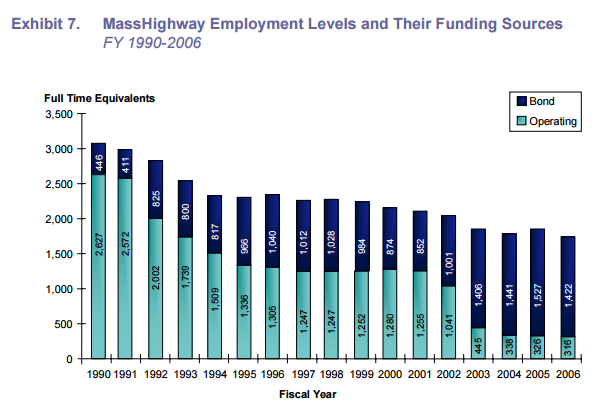Copying this from Reddit, because it sums it up really well
No. Fuck this shit, this analysis is a fucking joke.
Let's start with the basics. How are capital projects funded in Massachusetts? MA issues capital investment programs covering a span of five years, the individual project on those plans come a number of source that I won't get into fully, but includes everything from local road repair costs reimbursed by MassDOT to major infrastructure projects. In the simplest way, a problem is identified by a local government and/or transportation agency, then a design and public input process occurs, the Feds and the State usually have to perform a review (carried out by different agencies, for the MBTA it's generally an environmental review and a review from the Boston MPO and/or MAPC). If a project passes review, the bidding process can be implemented and the Commonwealth is bound by law to go with the lowest technically complete bid offered on these projects.
Funding these projects comes from local municipalities, the State, and the Federal Gov't. Federal money comes in the form of grants from a constellation of programs housed with the FRA, FTA, FHWA, etc.. State money comes in two forms: "pay-as-you-go" and transportation bonds. The pay as you go money is basically paying for capital investments with already existing cash, but it's generally eaten up by smaller projects or operating expenses. The vast majority of projects funded by the State are done so by issuing a transportation bond for that specific project. There are a bunch of other restrictions here, but that's not important. There's also the background politics, that puts certain less than worthy projects on the CIP - but again, that's not at issue here.
Now for the Herald. It's hard to say what projects they are talking about, because they don't fucking mention any specifically. It is however, safe to assume that the MBTA does not have $2 billion lying around - it has multi-billion dollars levels of mandated debt that are only applicable to a certain project. Most projects receive a certain amount of Federal financing, money which goes away if the State doesn't issue debt for the State's share, but oftentimes the actual disbursement of this money is tied into the individual project's timeline. So the South Station Expansion is funded through CIP, but none of the money is spent because the USPS won't sell the MBTA their mail sorting facility. That money cannot be reallocated, at all. If MassDOT were to cancel their funding of SS, the Federal money disappears, and the transportation bond is cancelled. Many projects on the CIP won't go out to bid for a while, even though they are funded. That's just how the system works.
It's beyond fucking disingenuous to portray debt as actual money, MassDOT does not have oodles of cash lying around, it has debt. That's it. Period. Anyone who wants to look at MassDOT's CIP can do so here.
tl;dr Herald doesn't understand the difference between debt and money


